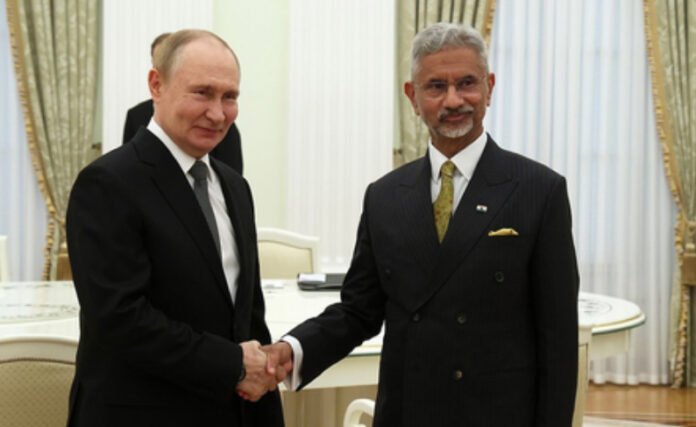New Delhi: External Affairs Minister S Jaishankar is scheduled to visit Moscow in the third week of November to attend the Shanghai Cooperation Organisation (SCO) Heads of Government Meeting, an engagement that will also serve as a precursor to the 23rd India-Russia Annual Summit. His discussions are expected to finalise the deliverables and framework for the high-level meeting, which will take place from December 4-6 and be attended by President Vladimir Putin.
This trip marks Jaishankar’s second visit to Moscow in 2025, underscoring the depth and frequency of diplomatic exchanges between New Delhi and Moscow. During the visit, he will meet Russian Foreign Minister Sergey Lavrov and Deputy Prime Minister Denis Manturov to review the comprehensive bilateral agenda, focusing on trade expansion, strategic cooperation, and new areas of technological collaboration.
Ahead of the December summit, New Delhi and Moscow are also planning to hold the second edition of the 2+2 Ministerial Dialogue involving foreign and defence ministers. This format aims to synchronise defence-industrial partnerships with foreign policy objectives. Delhi expects to push for enhanced Russian market access for Indian exporters, especially after the recent hike in US tariffs on key Indian goods such as seafood, textiles, agricultural products, and gems and jewellery.
The summit outcomes are likely to include several major announcements. India could confirm the procurement of a final batch of five S-400 missile defence systems, which have already strengthened its operational capabilities during Operation Sindoor. Talks are also progressing on acquiring long-range air-to-air and air-to-surface missiles for IAF’s Sukhoi fighter fleet.
In the energy sector, both countries are expected to sign agreements related to the establishment of a urea manufacturing facility in Russia, leveraging Russia’s vast natural gas reserves to meet India’s fertiliser requirements. Discussions are also ongoing for a long-term pact to secure the supply of coking coal and critical minerals essential for India’s industrial and strategic sectors.
Moscow has proposed that both sides formalise an intergovernmental agreement to govern the export volumes of coking and thermal coal, strengthening India’s energy security and helping diversify its supply chains away from other markets. Russia is already India’s top supplier of fertilisers and a major source of sunflower oil and coal, with bilateral trade touching record highs in recent quarters.
Another key aspect of the summit will be enhanced cooperation in the Arctic region and exploration of the Northern Sea Route, which offers India shorter and more energy-efficient maritime trade access to Europe. A bilateral mobility agreement is also under negotiation to facilitate the movement of the Indian workforce to support projects within Russia’s expanding infrastructure and industrial corridors.
Civil nuclear collaboration is set for expansion, with discussions expected on the deployment of small modular and next-generation reactors under India’s Power and New & Renewable Energy framework. The renewed emphasis on civilian nuclear projects signals the growing strategic convergence between New Delhi and Moscow in secure energy partnerships.
The forthcoming summit in December is poised to reaffirm the durability of the India-Russia strategic partnership, built on the pillars of defence, energy, technology, and multipolar cooperation. Both sides view the engagement as vital in rebalancing global supply chains and advancing a shared vision of a stable, multipolar world order.






